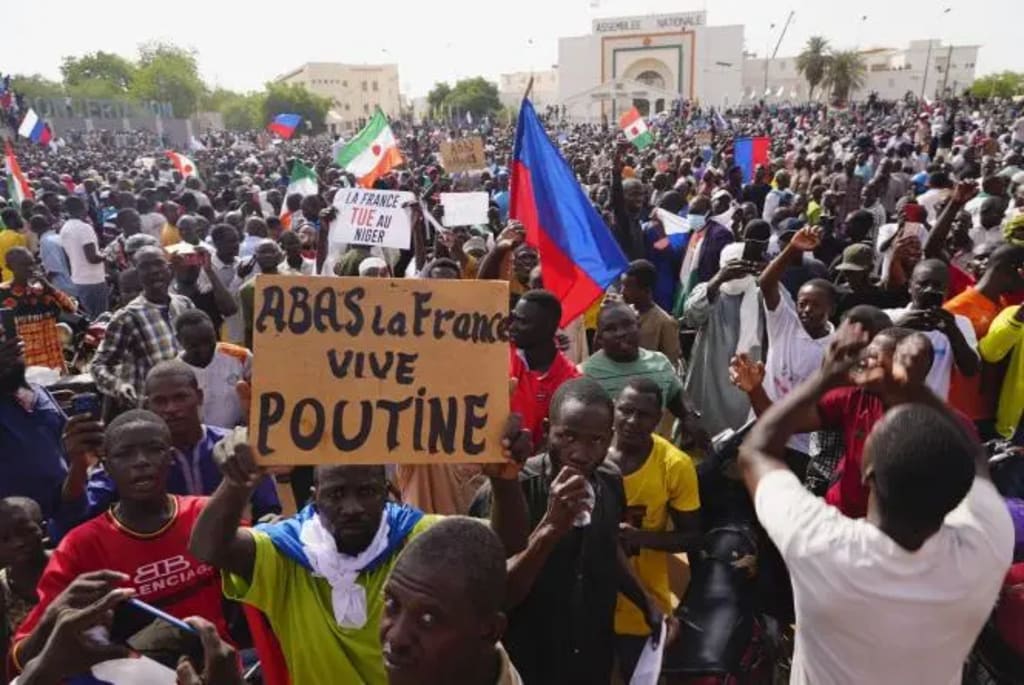Crisis in Niger: Coup, International Reactions, and Regional Tensions
In Niger democratically elected president, Mohammed Bazoom, was overthrown by his own presidential guard

In recent days, the West African nation of Niger has been plunged into a deepening crisis as the country's democratically elected president, Mohammed Bazoom, was overthrown by his own presidential guard. The swift and unexpected coup has triggered a series of events with far-reaching implications, both domestically and on the international stage.
The coup occurred on July 27th when members of the presidential guard detained President Bazoom, announcing his overthrow on national television. The group identifying itself as the "National Council for the Safeguard of the Homeland" took control, led by General Chiani, who declared the establishment of a transitional government. The exact motives behind the coup remain murky, with General Chiani citing concerns about the country's security and a need to prevent further destabilization.
The international community reacted swiftly and sternly to the coup. The Economic Community of West African States (ECOWAS), representing 15 nations in the region, condemned the coup and imposed sanctions on its leaders. ECOWAS further issued a warning that military intervention could be deployed unless power is restored to civilian leadership within a week. This marked the first time ECOWAS has threatened military force to restore constitutional order, underscoring the gravity of the situation.
Omar Toure, President of ECOWAS from Gambia, emphasized the urgent need to restore stability and constitutional governance. He stated that if demands were not met, measures including the use of force might be employed. However, the situation is far from straightforward, as neighboring nations like Burkina Faso, Mali, and Guinea expressed concerns about the potential for military intervention to escalate into a broader regional conflict. These countries argued that military action could exacerbate instability in a region already grappling with escalating attacks from Islamic militant groups.
The geopolitical significance of Niger, a former French colony that gained independence in 1960, adds complexity to the crisis. Niger is a major supplier of uranium to France and the European Union, and allegations of France plotting military intervention have further fueled tensions. The coup leaders have accused France of interference, particularly in light of its interests in Niger's uranium resources.
The international response has also spotlighted the presence of foreign military forces in Niger. The United States has over a thousand troops stationed in the country, and the coup has raised questions about the role of foreign powers in the nation's affairs. Criticism has been directed at the U.S. for potentially contributing to political instability by training military officers who have been involved in previous coups in the region.
The crisis has triggered a broader discourse on the impact of foreign assistance on regional stability. The U.S. military presence in Niger includes drone bases and installations, with concerns being raised about the implications of such infrastructure. Additionally, concerns about a potential proxy conflict have emerged, with protests erupting in support of the coup and against perceived Western interference.
It is important to contextualize these events within the historical anti-colonial sentiment prevalent in the region. The legacy of colonialism continues to influence local perceptions of foreign powers, contributing to grievances and tensions. The coup has provided a platform for expressing these sentiments, as some view it as a struggle against historical colonizers.
Amid the complexities of the crisis, there is a real risk of further escalation. The international community is grappling with how to respond effectively to a multifaceted challenge that encompasses historical, geopolitical, and regional dynamics. As global powers navigate their roles and interests, the people of Niger and the broader region remain caught in a precarious and uncertain situation, underscoring the need for careful and thoughtful diplomacy to prevent further destabilization.
About the Creator
Francis Osei
“Tom bele has been working with writing challenged clients for over four years. He provides ghost writing, coaching and ghost editing services.






Comments
There are no comments for this story
Be the first to respond and start the conversation.